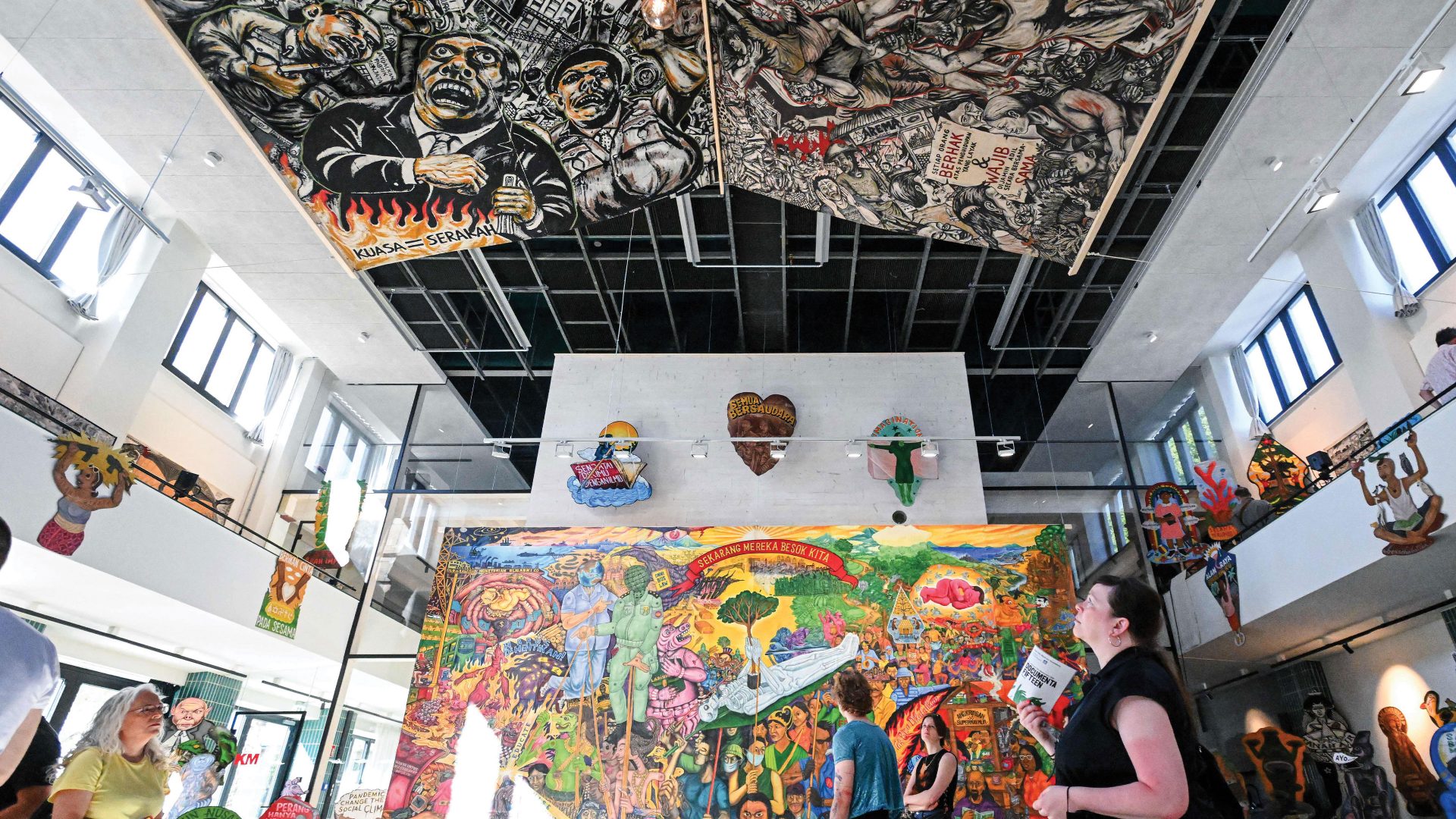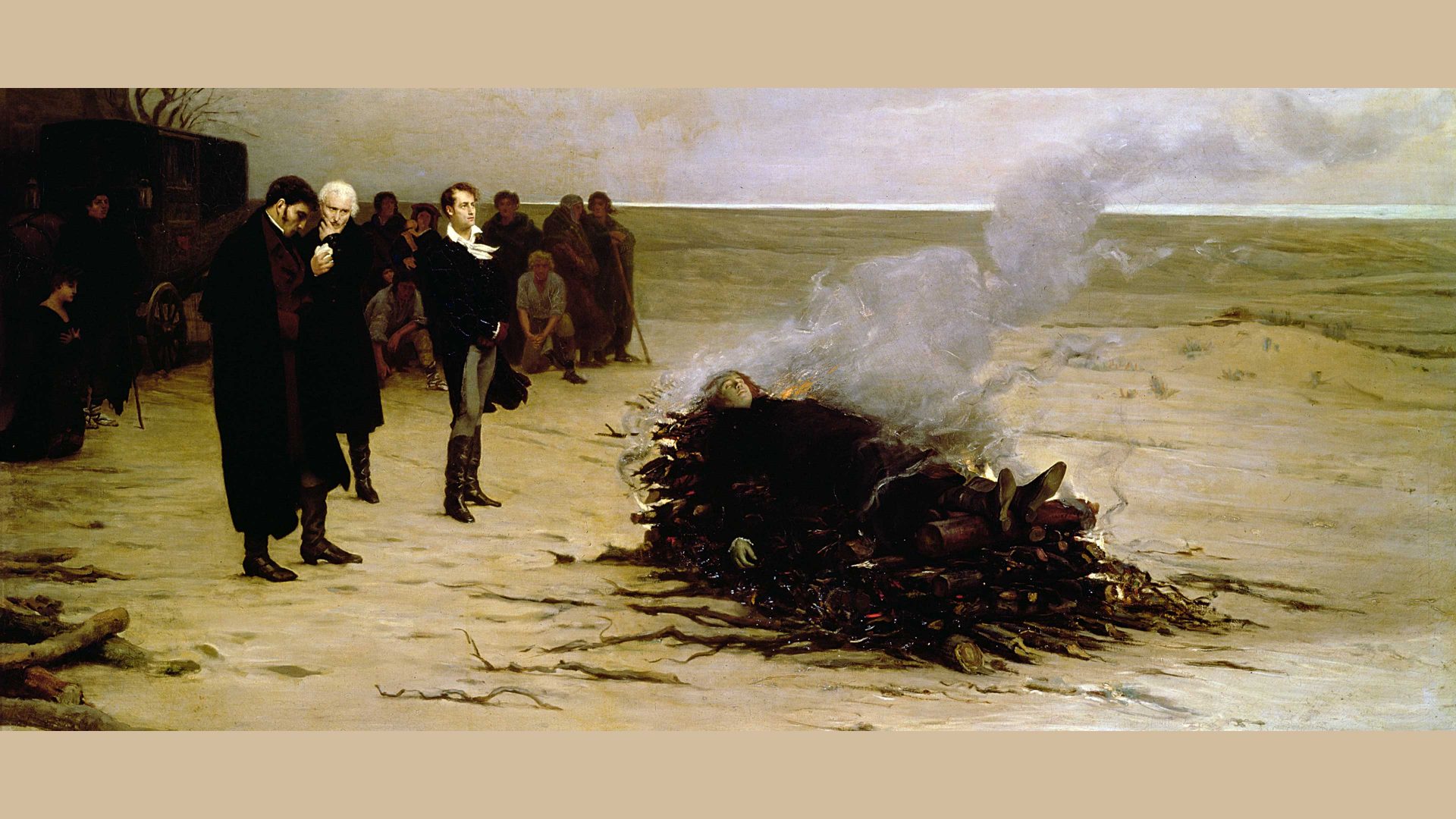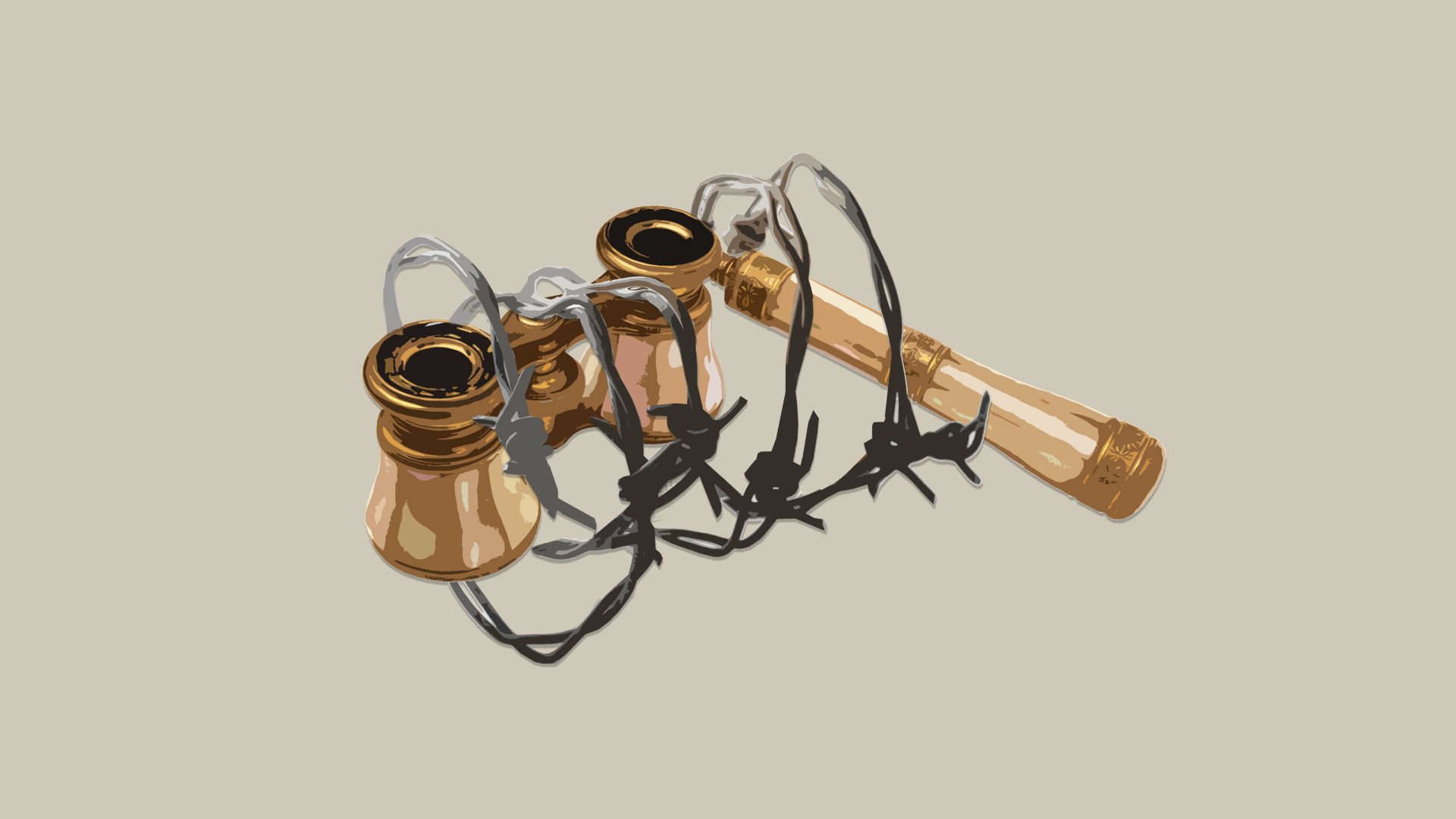Documenta is a prestigious modern art show, held every five years in the German city of Kassel, and usually the talk of the contemporary art world. This controversy-plagued 15th edition is the talk of all Germany.
Putting Indonesian artistic team Ruangrupa at the helm of what is usually a more traditional affair was intended to bring in the Global South and focus on ideas such as solidarity and doing things differently. What was on show initially appeared to be mostly a retro mix of Corbynite idealism and Blue Peter arts-and-crafts aesthetics, presented with all of the aplomb of an Occupy assembly.
But before the doors had even opened, the media and the extreme right had focused on the participation of Palestinian artists seen to be critical of Israel. Panel discussions about racism were scrapped, for fear of inflaming matters. And then a full-blown antisemitism scandal arrived in the shape of a 2002 cardboard banner by the Indonesian Taring Padi collective, who elsewhere in the show had filled a former swimming pool with its anti-capitalist, anti-imperialist agitprop. The offending piece, since removed, depicted among other caricatures, a pig dressed as a Israeli soldier and a Hasidic Jew with sidelocks, baring sharp teeth while smoking a cigar, while wearing a hat with the SS logo on it.
Chancellor Olaf Scholz has since cancelled a planned visit to the show and there is talk of future editions coming under tighter government control. Ruangrupa and Documenta’s director Sabine Schormann have apologised. There have been calls for Claudia Roth, the German culture minister, to resign.
It is far from what Schormann imagined when Documenta’s finding committee decided to shake up an exhibition that can be seen as the epitome of the contemporary art world, with its strata and hierarchies, its expectations of what is high art and its links to the international art market, even though it’s not an art fair. Instead of the usual somewhat stiff, formal front, Ruangrupa would bring a riot of ideas and presentations. Instead of exclusive dinners where museum directors, gallerists and curators hobnob, there are community kitchen-type free-for-alls where everyone can mix.
“Until now the Documenta exhibitions were very international but always with curators who had more the western perspective. It was interesting to get people to come from other parts of the world, with totally different viewpoints,” she said. Yet a still very German event may have bitten off more than it can chew when it decided to put such a clear emphasis on doing things differently and bringing in the Global South in this particularly conceptual way.
Ruangrupa, in its spirit of collectivism and to spread the love, and the money, invited other collectives from non-western countries to participate and some of these again widened the network, which was the intention but also leads to a loosely curated, inconsistently documented and, in quality, extremely varied exhibition.
The result of this cooperation is a flurry of high rhetoric focusing on anti-colonial, anti-capitalist, anti-imperialist, anti-globalist themes and the like. Rather than feeling like a new departure, though, it often seems to hark back to old-style international protest movements from the 1960s and 1970s, at times even embracing the same aesthetics.
And then, of course, there are the allegations of antisemitism. Beyond the Taring Padi banner, parts of the Palestinian participation can be read as emphatically hostile to Israel, which should not be a surprise. But in Germany, with its historical responsibility for the Holocaust, this is particularly sensitive. Documenta might have known that inviting in an artistic discourse that is focused on the Global South and solidarity, with at times an international protest movement flavour, could open the door to a polemic that could clash with its traditional environment.
It is something Sabine Schormann does acknowledge. “Germany, Europe too but especially Germany, has this special historic responsibility concerning the Shoah and everything else. And the right of Israel to exist is embedded in the German state, that is absolutely at the basis of our life here. At the same time there is also a lot of racism and other issues that stem from the colonial experiences. And of course these experiences are as bad and people have also the right to fight for better conditions there. Of course these two sides can get into conflict with each other.”
Amid the controversy, the question remains whether all of this delivers good art. At Documenta there are some brilliant works. Amol K Patil fills an at times somewhat shadowy basement at the Hübner-Areal former industrial site with beautifully evocative sculptures that draw on Indian traditional performance and his background in Mumbai. Atis Rezistans/Ghetto Biennale takes over the St Konigundis church with a thoroughly gripping exhibition of sculptures and images that brings home the history of Haiti’s revolution and its role in Black liberation. South-Korea’s ikkibawiKrrr shows a haunting video of the country’s ‘sea women’ divers and also a mesmerising two-channel video installation of remnants of the Japanese colonial past in Korea.
That said, several of the collectives present documentation and videos of workshops and events that they have done in the past. It’s one more step removed from consuming art as a plate of food. It’s not even helping with the cooking; it’s watching others talk about the idea of preparing food. Combined with too many video works that are heavily reliant on straightforward pieces to camera, this becomes quite heavy fare to work through.
What doesn’t help with some of the more easily accessible works is often a lack of context, hidden wall texts and at times poor presentation. Fun ideas, such as board games altered to be collaborative rather than competitive, were easy to miss among overwhelming settings and the crowds.
According to Ruangrupa, the focus is on a series of intangibles – relationships formed, people involved and above all, “the process”, with workshops, events, talks and other ways of involving the visitor.
“The process is more important than the final product,” Ruangrupa’s Daniella Praptono admitted. “It’s like when you go out for dinner and you expect a plate of food to be placed in front of you. Well, here we expect you to come into the kitchen and help with the preparation, the cooking too. Not just eat it.” But what kind of aftertaste will Documenta 15 leave?
Documenta 15 is in Kassel, Germany, until September 25 Ferry Biedermann is a journalist based in Amsterdam.



